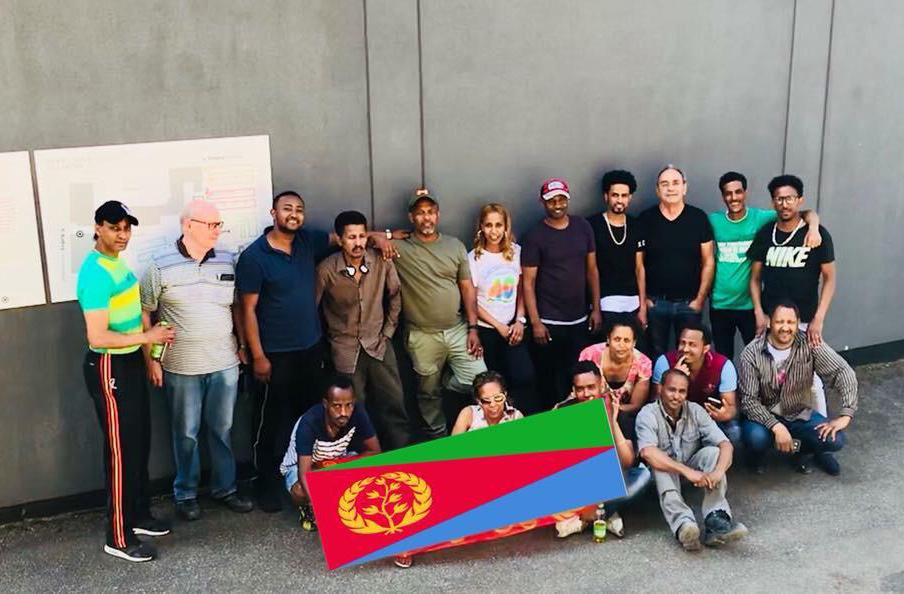Abiy Ahmed Photographer: Michel Euler/AFP via Getty Images
Ethiopia’s New Leaders Are Clearing House
By Nizar Manek | Bloomberg
Ethiopia’s new leaders are clearing house as the nation’s political transformation gathers pace. Among the targets: officials at a military-linked conglomerate once in charge of building Africa’s biggest hydro power plant, former spy chiefs and northern and eastern elites.
Touting a crackdown on the “cancer” of corruption and rights abuses, Prime Minister Abiy Ahmed has vowed to usher in greater accountability and political freedom for the continent’s second-most populous nation. His recent confrontation with military officers shows not everyone may welcome the shakeup.
“Like in the security sector, a purge is being cascaded into the regions,” said Musa Adem, an independent political analyst based in Jijiga, the capital of Somali regional state in the east. Abiy last month said his reforms would extend from the federal level into Ethiopia’s nine regional states.
Dozens of current and former officials from the National Intelligence & Security Service have been arrested this month on accusations including torture, extrajudicial killings and running secret prisons in the capital, Addis Ababa.
Also detained are dozens of officials from Metals & Engineering Corp., whose contract to build the $6.4 billion Grand Ethiopian Renaissance Dam and power plant was revoked in August. The company’s ex-director-general is accused of breaking United Nations arms embargoes on Somalia and Iran and misusing billions of dollars from the dam, sugar and fertilizer projects. None of the arrested have been charged; evidence-gathering is ongoing.
Redistributing Power
Abiy, who replaced Hailemariam Desalegn as premier in April after three years of protests, is spearheading a redistribution of power across Ethiopia, under the tight grip of the Ethiopian People’s Revolutionary Democratic Front for a quarter-century and where the army and economic interests have become deeply entwined.
There have been tensions with the military; about 250 officers marched on Abiy’s office last month, dispersing after what state media said was a pay dispute was resolved. The government later said army “plotters” were being arrested, and Abiy told parliament that salary grievances were “only a cover story.”
Muddled Monopoly
As he pledges multi-party democracy, Abiy’s also said the ruling parties and government are separate entities, muddying the EPRDF’s monopoly on power that stretches to Ethiopia’s remotest villages.
Change is already afoot in some of Ethiopia’s nine ethnically based states, each ruled by a patchwork of entrenched ruling parties under the federal coalition. There have been moves to replace the presidents and ruling-party leaders of states such as Gambella and Harar, while in Afar state veteran party officials agreed to new leadership taking over, according to Abiy’s office.
Recent events in Somali regional state, which borders war-torn Somalia, show the challenges in store. Its new president, Mustafa Omer, took office in August and vowed to dismantle a regime whose brutality he’s compared to the mafia’s.
That’s pitted him against the ruling Ethiopian People’s Somali Democratic Party, some of whose officials have been arrested or removed from their posts for alleged plotting, Mustafa said in an interview.
He took office in August, following violence along the boundary of Somali and Oromia states that forced over a million people to flee. Police are probing a mass grave containing about 200 bodies dating from the bloodshed, while Mustafa’s predecessor, deposed by federal troops, is awaiting trial for alleged abuses.
“Things are very much under control but we are lagging behind in terms of quickly reforming the party,” according to Mustafa, who says his new cabinet will steer decision-making and acting as a “firewall” against the party’s involvement.
Mustafa risks alienating some of his broader Ogaden clan, who once had the majority of local government posts, by widening representation for other communities, according to analyst Musa. His push for root-and-branch changes is also testing the loyalty of the Liyu Police, his predecessor’s enforcers who’re accused by rights groups of years of abuse.
In Afar, a state bordering Ethiopia’s former foe Eritrea, there’s a split in the ruling party between a “reformist” wing linked to Abiy and supporters of the embattled regional president, who’s faced protests by local youth, according to Musa. Some top members of the party were temporarily removed from their roles last month, he said.























